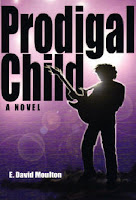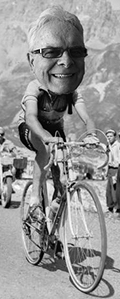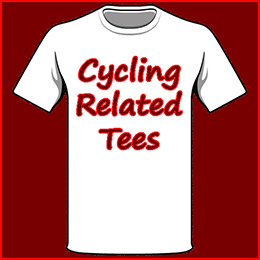Truth in Fiction
 Wed, September 12, 2007
Wed, September 12, 2007 
When I started writing Prodigal Child in July of 2001, I had the option of writing my biography or a work of fiction.
I chose the latter because I felt it would have a wider audience; the life of a framebuilder would limit potential readers to bicycle enthusiasts.
At the time I was not even sure that bicycle enthusiasts would want to read about my life. Only a few years earlier, I had been abandoned by previously loyal customers for a new love, namely the mountain bike. I felt like a deserted spouse and in such times there is doubt and mistrust.
People who read Prodigal Child invariably ask me, “Is this your life?” The story, written in the first person, does read like a biography. I usually answer that the book is fiction, but that a lot of my life is in there.
There are obvious parallels with the book’s main character’s life and my own. His name, Eddie Conner, was chosen because my first name is Edward; I have always been known by my second name, David. The last name, Conner, I picked because it is a fairly common Irish name. My father was Irish as is Eddie’s father in the book, although the real name, Moulton, is an English name.
I suspect at some point my father’s ancestors migrated from England to Ireland, which would explain why his family were of the protestant faith in a predominantly catholic country. I have written here on this bike blog about my relationship with my father. It is of little surprise that Eddie Conner and his father have a similar relationship.
I am an ex-bicycle framebuilder, turned writer and songwriter. Eddie Conner is a songwriter, turned artist and metal sculptor. He also migrated to the US and lived in Southern California, as I did. Aside from these obvious parallels, what else is true?
I will probably never write my biography because much of it would sound an awful lot like Prodigal Child. Apart from that statement, it serves no purpose for me to say more. In the first chapter of the book Eddie Conner struggles in an interview with a magazine, because there are certain aspects of his life he would rather not reveal. I am no different.
A year or so ago, James Frey, wrote a book, purporting to be his biography. It was called “A million little pieces.” He was fortunate enough to get on the Oprah Winfrey show and his book became a best seller. It later proved to be a million little lies, a work of fiction.
There is probably more truth in my work of fiction than in Frey’s book. How much truth? That is for the reader to decide. Most authors draw from real life experiences when writing fiction; it also makes for more entertaining reading. If something sounds true, maybe it is true or maybe it is just skilled fiction writing.
By saying up front that my book is fiction I am not cheating anyone. It is a story worth reading; it is entertaining. Much of the story takes place during the early 1960s; an exciting era in Britain’s history as the music scene unfolded. I grew up in England during this period, so I write from first hand experience. The story also has a non-religious spiritual message.
A reviewer wrote:
“Who among us is not our own worst enemy? Which of us does not wish for a second chance? Which of us does not have an inner artist trying to break free? Prodigal Child is a satisfying and charming read because it deals convincingly with these very personal, yet universal, issues.”
Fellow bike blogger, Ed over at Cycledog, has just read and reviewed the book. Amazon.com has the book discounted. If you would like a signed copy, go to my profile on this blog and email me. If you would like a preview before you buy, the first four chapters are posted on my website.
 Dave Moulton | Comments Off |
Dave Moulton | Comments Off | 

















Reader Comments (3)
Your novel is no exception.
Apparently James Frey is being published again, next summer. The reason? He has a huge fan base which makes it worthwhile for a publisher to tap into (his memoir is still popular).
Just what are readers getting out reading something that isn't what it was supposed to be? And what kind of fans does that make them?
To take the time and money to do so...
I haven't read your book, but it's on my list, now. I can understand that you would include a lot of yourself in this story, but so much of your life is incredibly unique, and not to be expressed through a constructed proxy. I know more than a few people who would find the autobiography of a world-renowned framebuilder to be fascinating. What made you start riding? Why did you start building frames? For people who know what a frame is, the thought behind their creation is a rare treat, and the thoughts behind Dave Moulton frames would be diamonds in the rough.